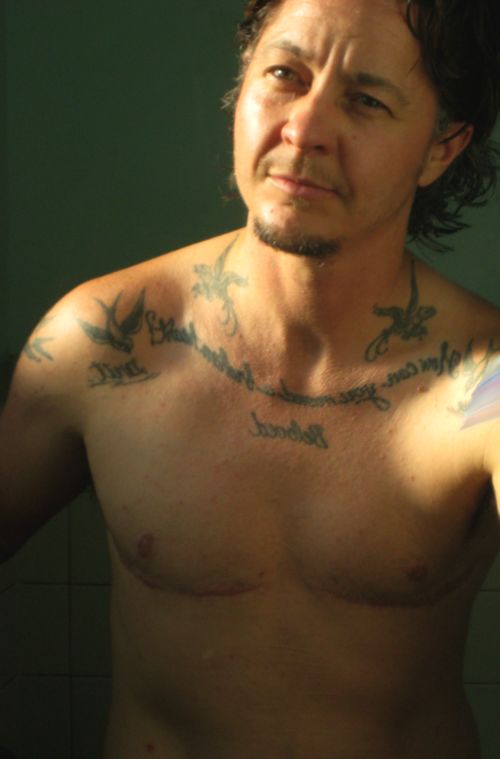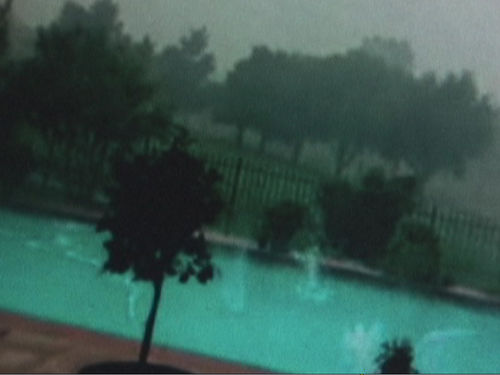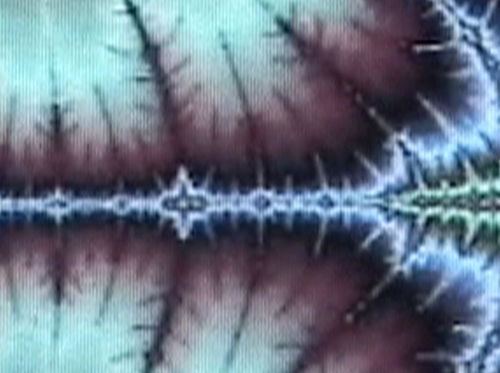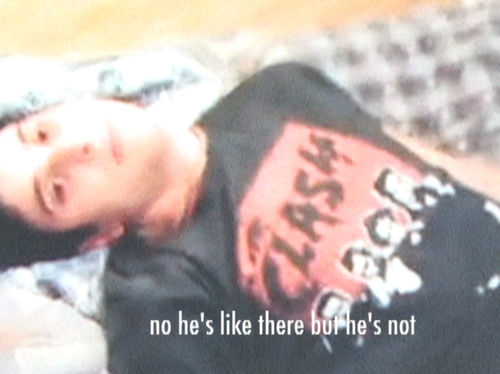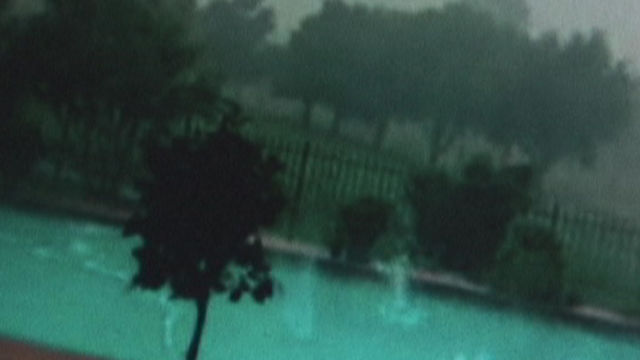
3 Questions with Harry Dodge
Why L.A.? Why did you choose to work in this city in particular?
I love California. I was born in SF and lived there a long time as a young adult (after growing up in the Mid-West) it took me way too long to get down here. But now I thrive in the hotted-up glow of L.A., the way the wilderness and congestion cross-pollinate. It's appalling, dissonant, thrilling, provocative. I've always identified with the history of art-making here, in its breadth. From bodies to boxes, I appreciate the gamut. The anoriginality of this coast as a locus for art, has, in no small way, suffused the ether here with a kind of leaping generative courage that is practically heritable. It's deep and good. The best artists here possess a sort of transgressive pith. I like the wit, the history of lewd, impeity, punk, profusion, anti-authoritarianism. There's more intellectualism here than anywhere else right now, and we've a keen eye on ethics, critique too. In L.A., we're actually generating art worlds, collaboratively. We're breathing together, cultivating difference right along with solidarity. We're building art worlds here (all kinds of new ones all the time) not just inhabiting them. At least the artists I know, there's not this conscription.
Conceptualism, more than an absolutist rejection of materiality was conceived of as an interruption of the capitalization of the art work, a capitalization which tended to, in many ways, homogenize, you know, de-facet or diminish the communicative or social energies flowing from the work. So de-materialization was an effective tactic at that time. But currently, I think, as we navigate virtualization, you know, the "semioticization" (or, even, the rhetorics of semioticization) of capital (and sociality), that muck or matter, or, you might say, corporeality, it's going to be figuring in very differently right now. Flesh is at issue in a new way. Embodiment. The idea might be the thing, and that seems right to me, but there is new conversation in which the idea is not de-linked from the form, or the body or viscerally, affective properties of the art work in question. L.A. perspires. The artwork perspires.
How has your time in L.A. shaped your work?
My practice is research-based. I read a lot, non-fiction, pretty strictly, and have a crazy, busy, zealous studio practice, that is fueled by the zesty, joyful, intellectual knots I'm working through at any given time. I think through sculpture, video, drawings, performances and writing. My main interests have to do with profusion, unrepresentable specificity in the glow of dynamic indeterminacy, a kind of unnamabiilty that arises when things flood and transgress category. Most of these things, honestly, I haven't connected directly to Los Angeles. However, there are ways, mostly vehicular, in which L.A. comes into play.
Let's see.... I've been here quite a while now...it's sort of four-pronged. The art history here, of flesh, color, transgressiveness, even slickness of surface, confronts other urban aesthetics like grime, crowding, compression, heat, corruption which in turn intermingles with the all-but-strangling effluvium of "representation" (oppressive templates) emanating from the film and TV industry. Conventions of narrative. Politics of narrative. I'm always in dialogue with all that stuff when it comes time to make work.
Number two is teaching. I've had the opportunity to have taught consistently for MFA programs here since 2004. (I'm on permanent faculty now at Cal Arts). Related to direct democracy, or you could say anarchistic ideas on relation and ethics: pedagogical modalities, sociality are both subjects that carry a good deal of velocity in my practice. Teaching allows me to always be in research mode, awake to conversation, (which I adore) and it gets me out of the studio. (Being employed as an artist professor tempers my natural tendency to slide into total hermit freakiness.) In studio visits and classes, I sometimes function as a cheerleader (as well as a guide and a resource) for young people who want to go out and make something happen D.I.Y. style. Which, to me, is the only way to retain a core of meaningfulness in art practice. When we start making products, solely for consumption, you know, at that point, it's a job, a business, and not a joy. The joy starts to fade. We're here to meet up right? Talk about our ideas. Encounter each other. The work can augment those encounters. I'm interested in that.
The third thing I can think of is L.A.'s version of a caste system. It's similar to other urban American environs sure, but here, there's the added brutality that fruits in the fecund fields of "representative" images flowing from the entertainment industry. Mainstream images of how "we" live. Leave it to Beaver is even weirder when it's made next door. And now there's not just four channels of watchable narrative programming, there's sixty. I'm keyed into who's marginalized, criminalized. Who is represented, who's not. What is representable? What is narrative? Hm. Things have got to change. I'm for income caps...who's with me!? These are some of the thematics, particularly in the videos, but I always touch on injustice obliquely, and usually with some amount of irony. And a strange disarming tenderness. At least I hope for that.
And the last thing I can think of quickly here, is the landscape of L.A.; it's always in the video work. It wouldn't be the work it is without the constant ironic use of the hybrid landscapes of Southern California. Polluted, unpeopled, crumbling infrastructure...the urban coyotes, wildfires, low-slung ranch-style industrial building for miles. As far as the video, and even the sculpture is concerned, my work looks like L.A., and depicts L.A. It wouldn't be itself if it weren't made right here.
Favorite place in L.A. Go.
I live near the Lower Arroyo Seco Nature Park in Northeast L.A. My family and I go there all the time and fool around. We see bunnies, coyotes, thousands of oak trees, snakes. Sometimes we even splash around in that strange stream that runs through it. I pretend it's unpolluted. I guess it's run-off from the mountains, which doesn't sound bad, but sometimes it smells a little egg-y. We set out blankets and read books to the kids.
Harry Dodge screens the world premiere of the film The Time-Eaters, along with a short (The Fudgesicle), on August 20, followed by a Q&A.



